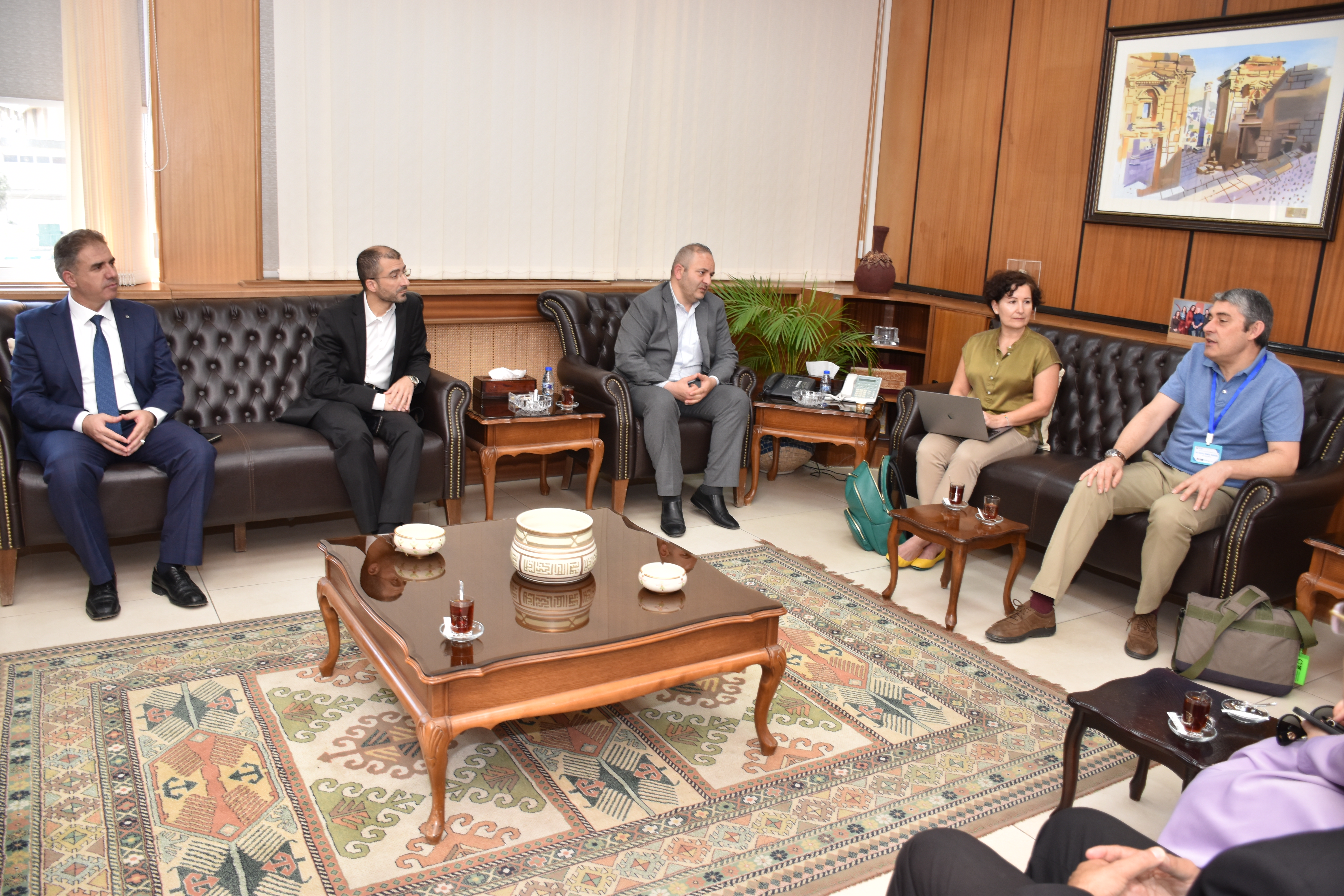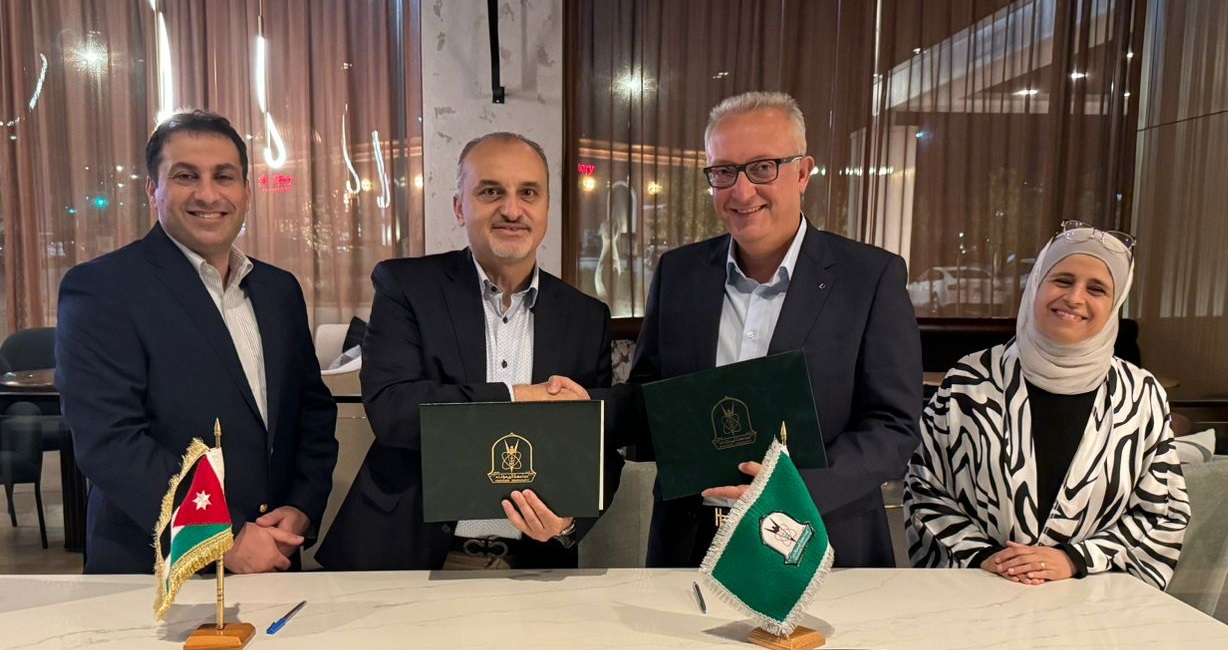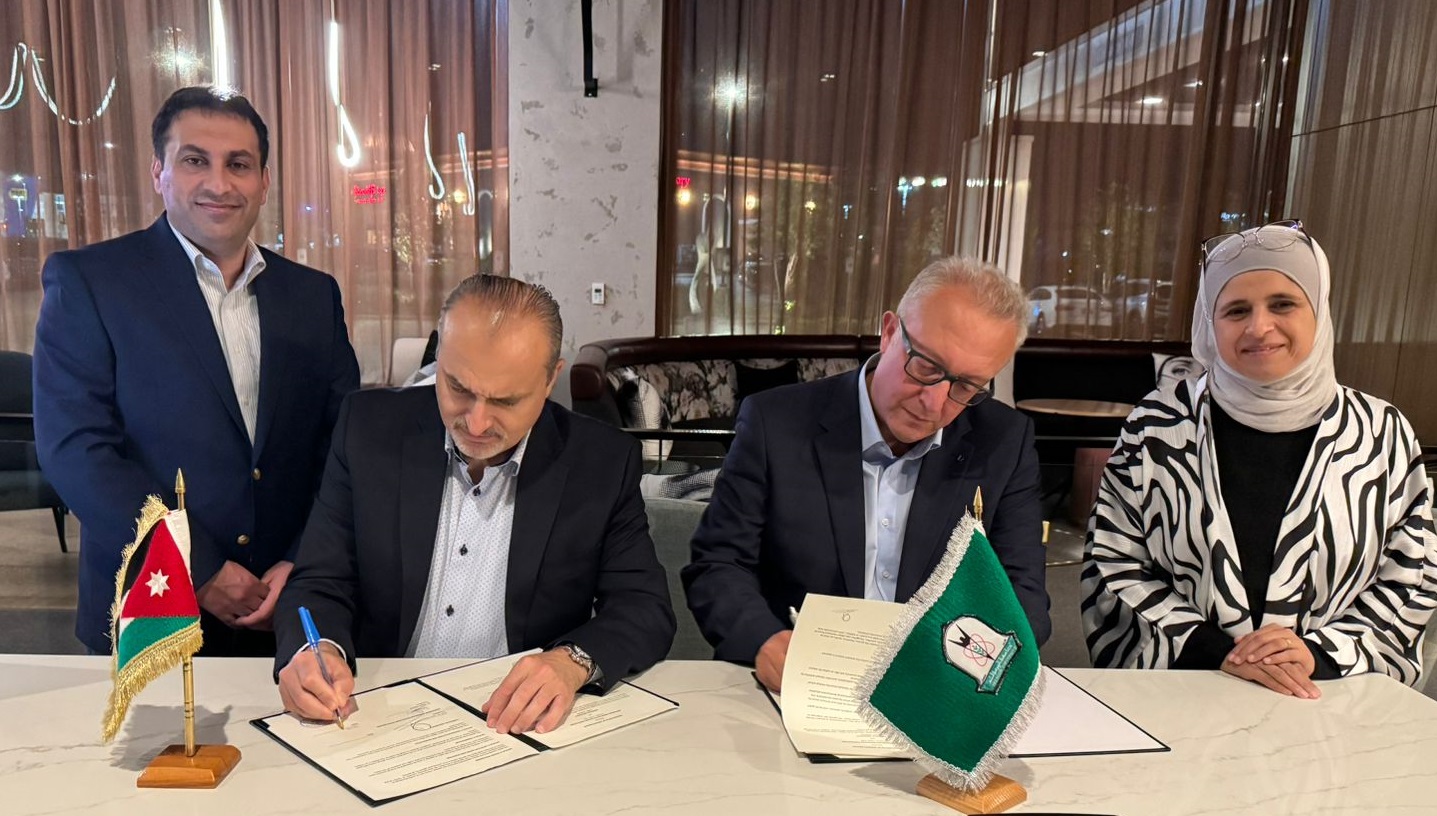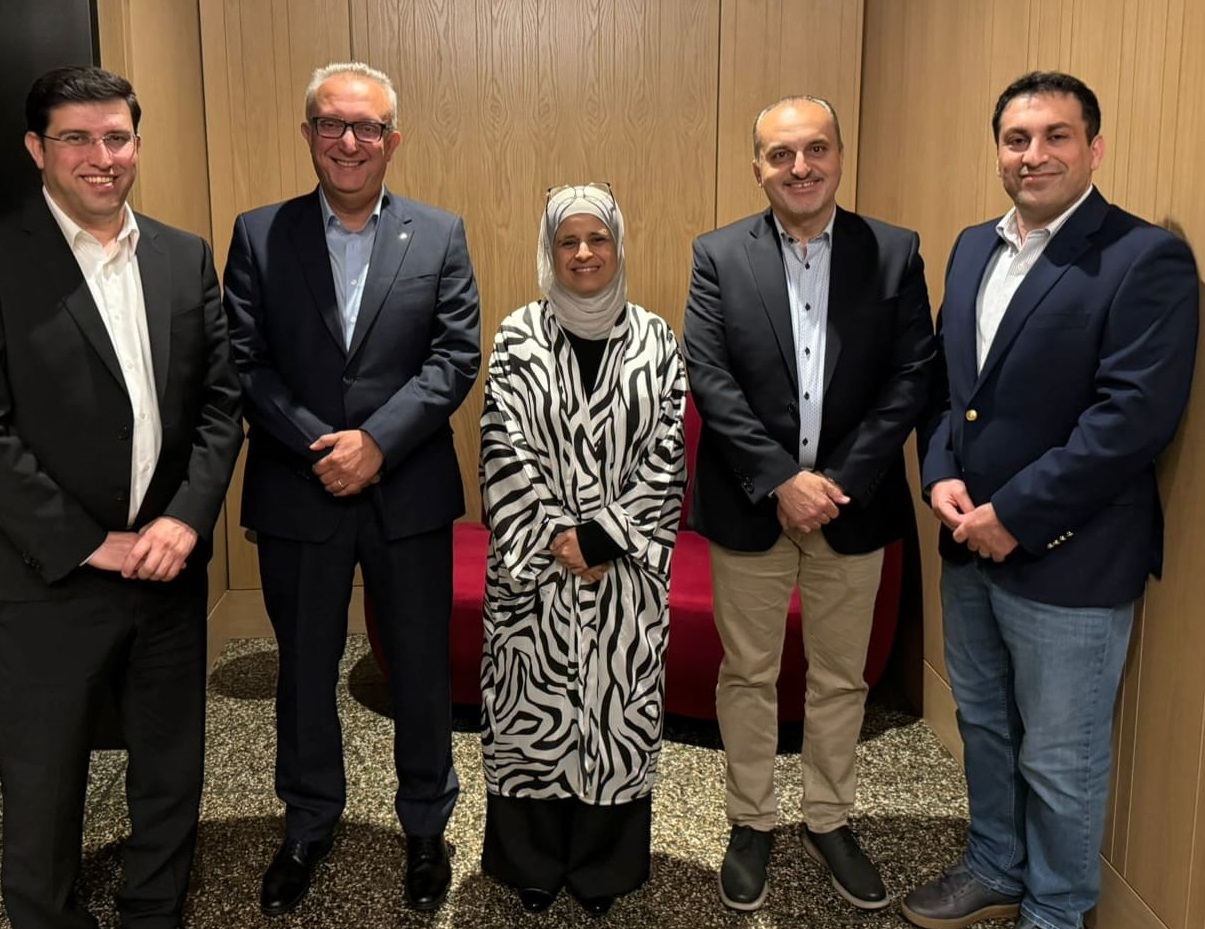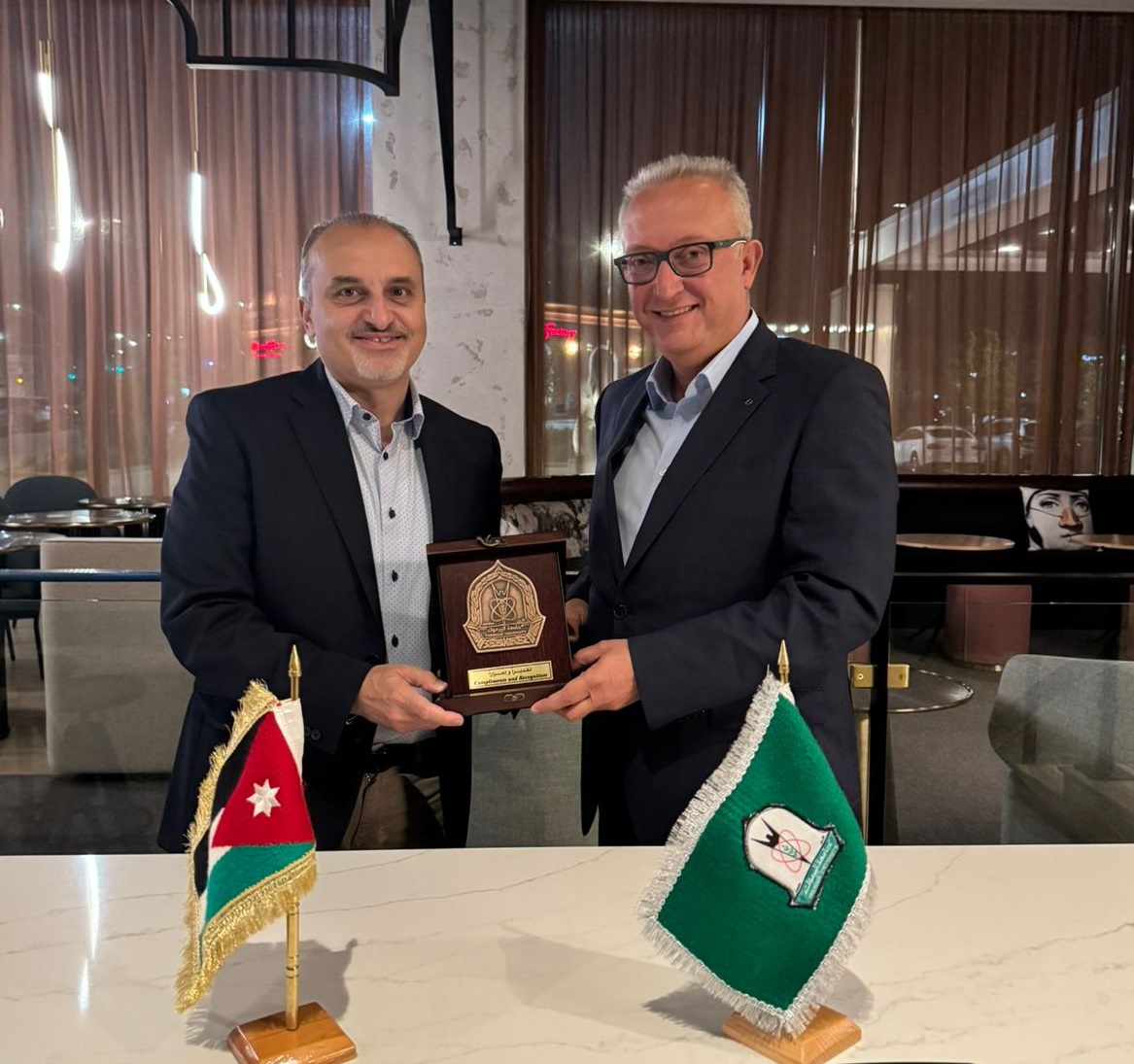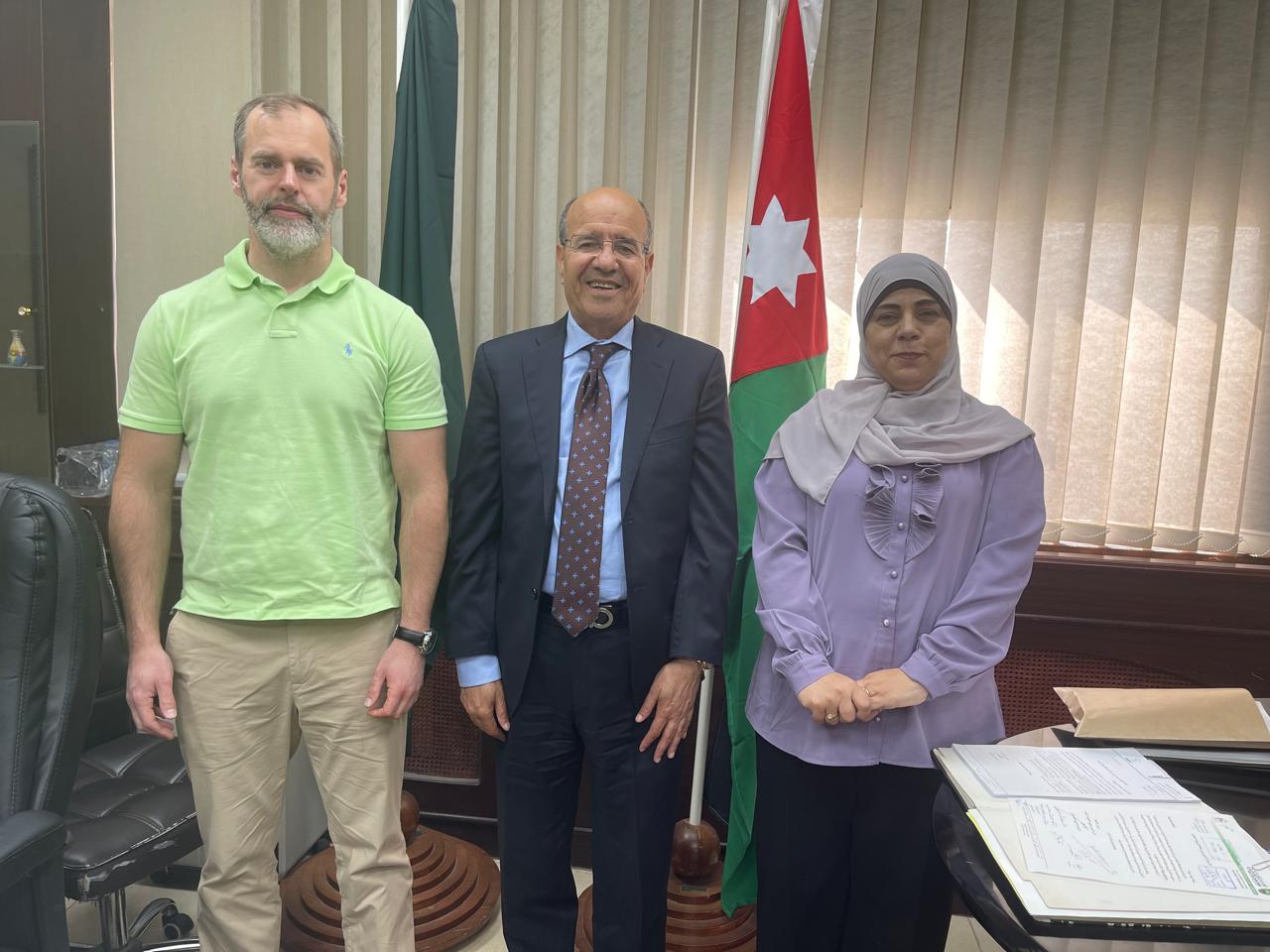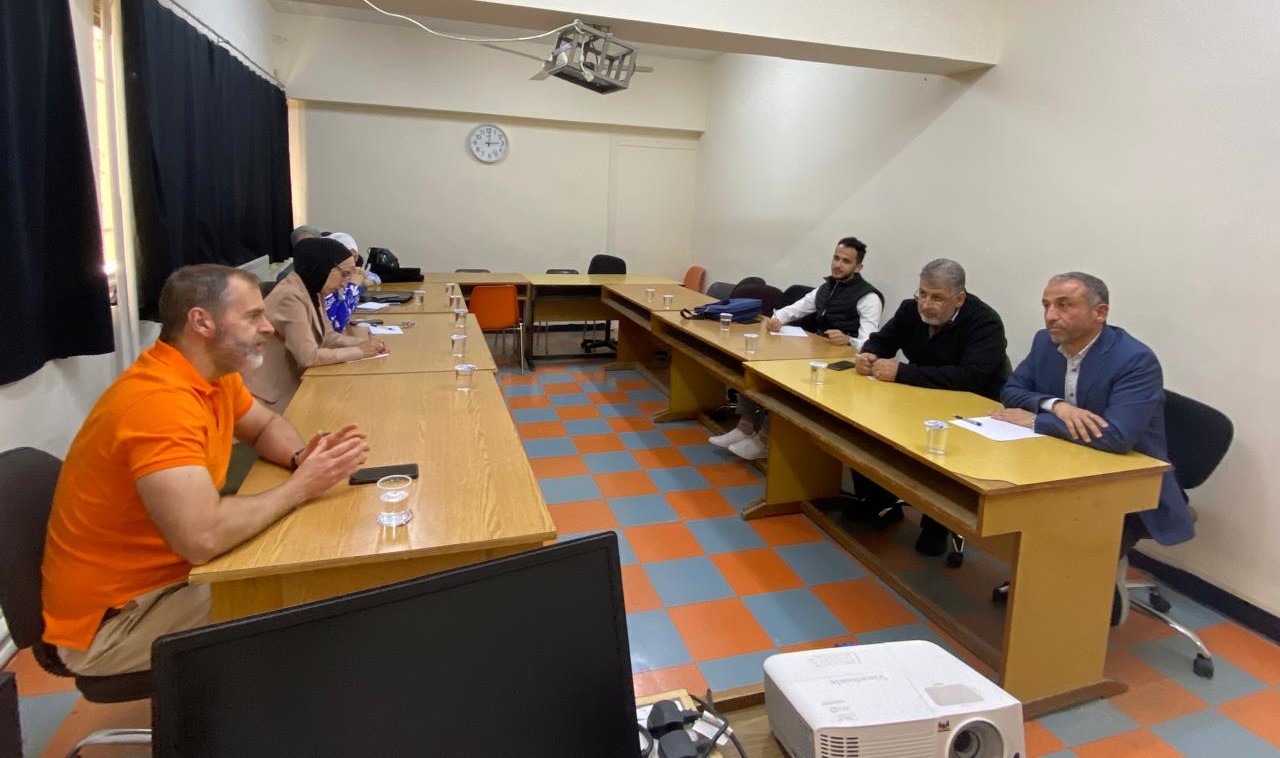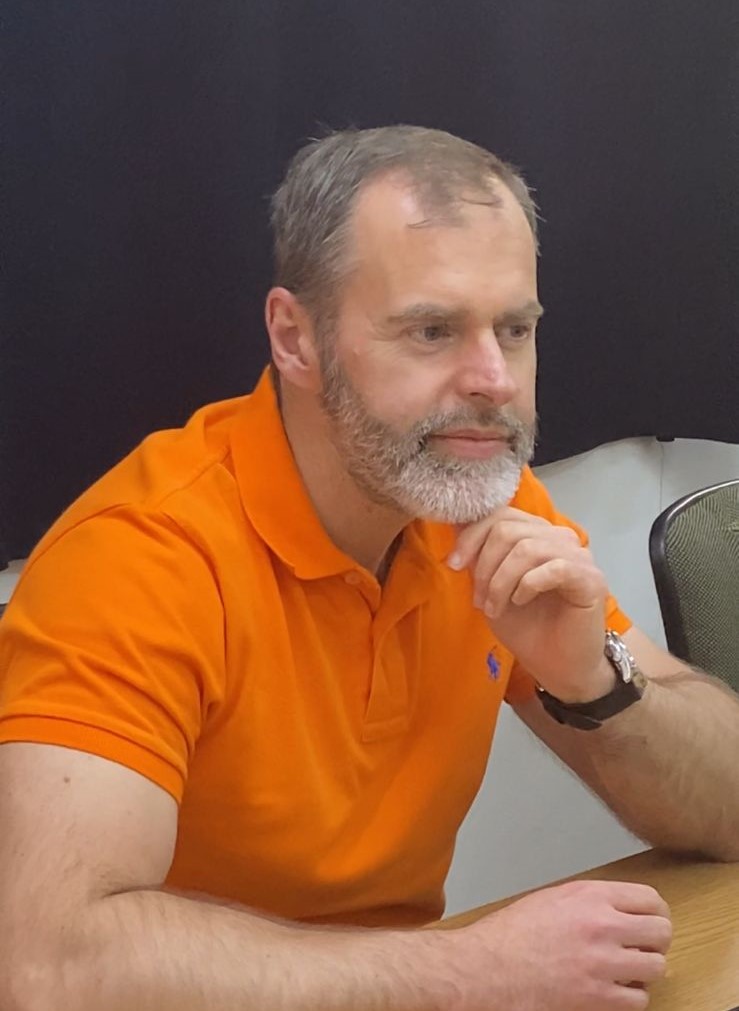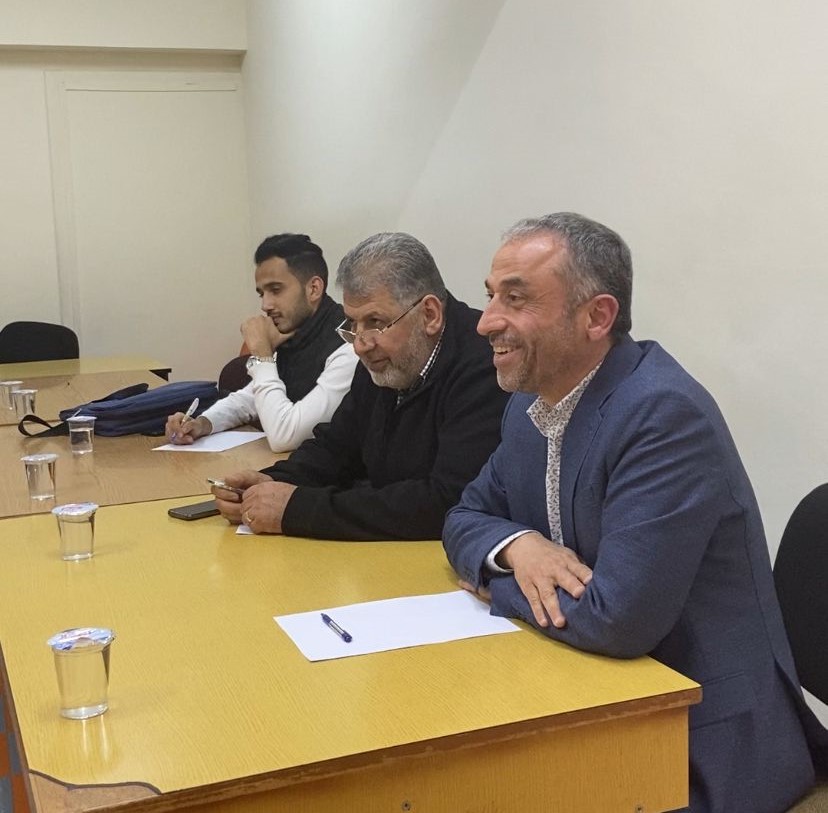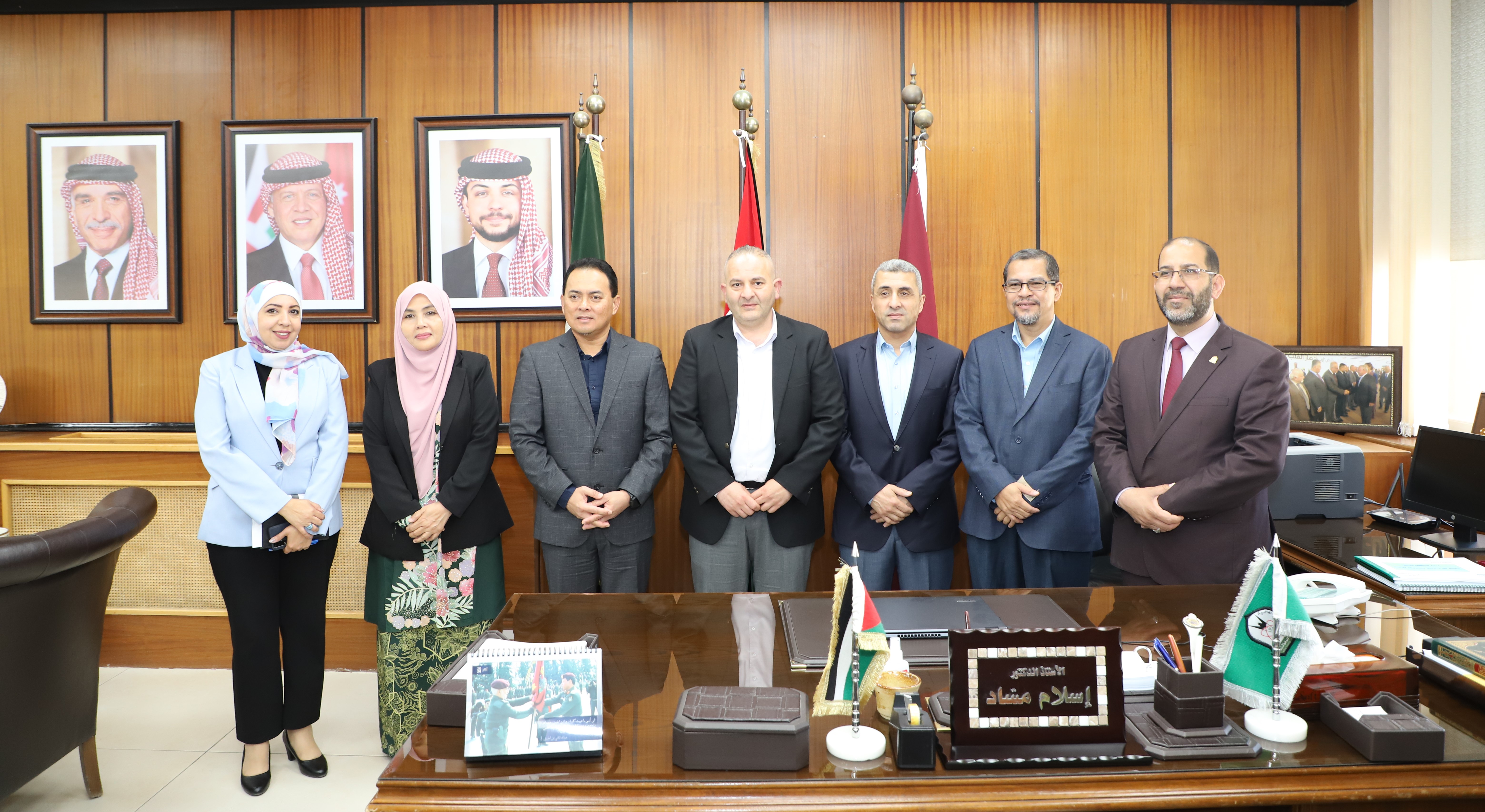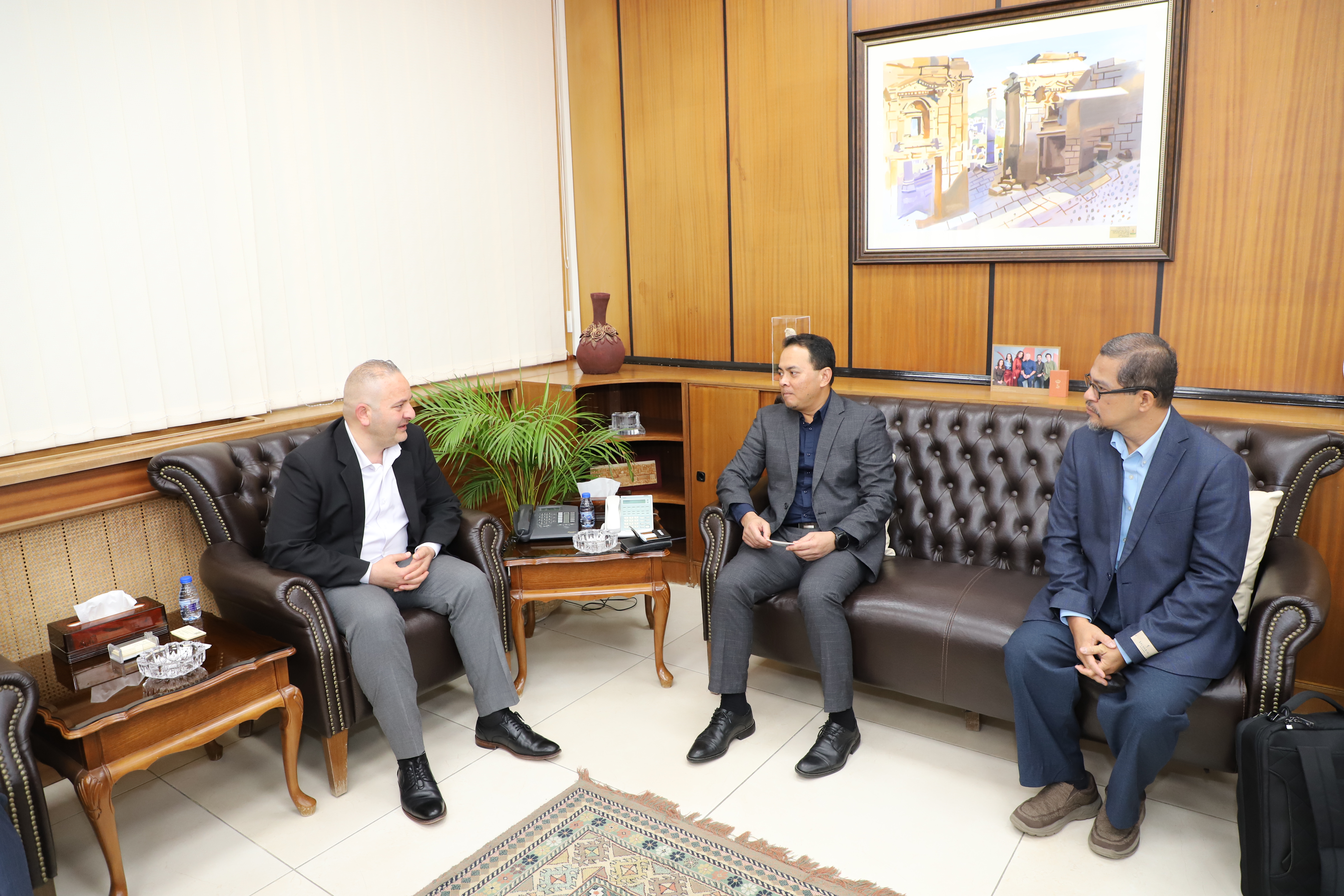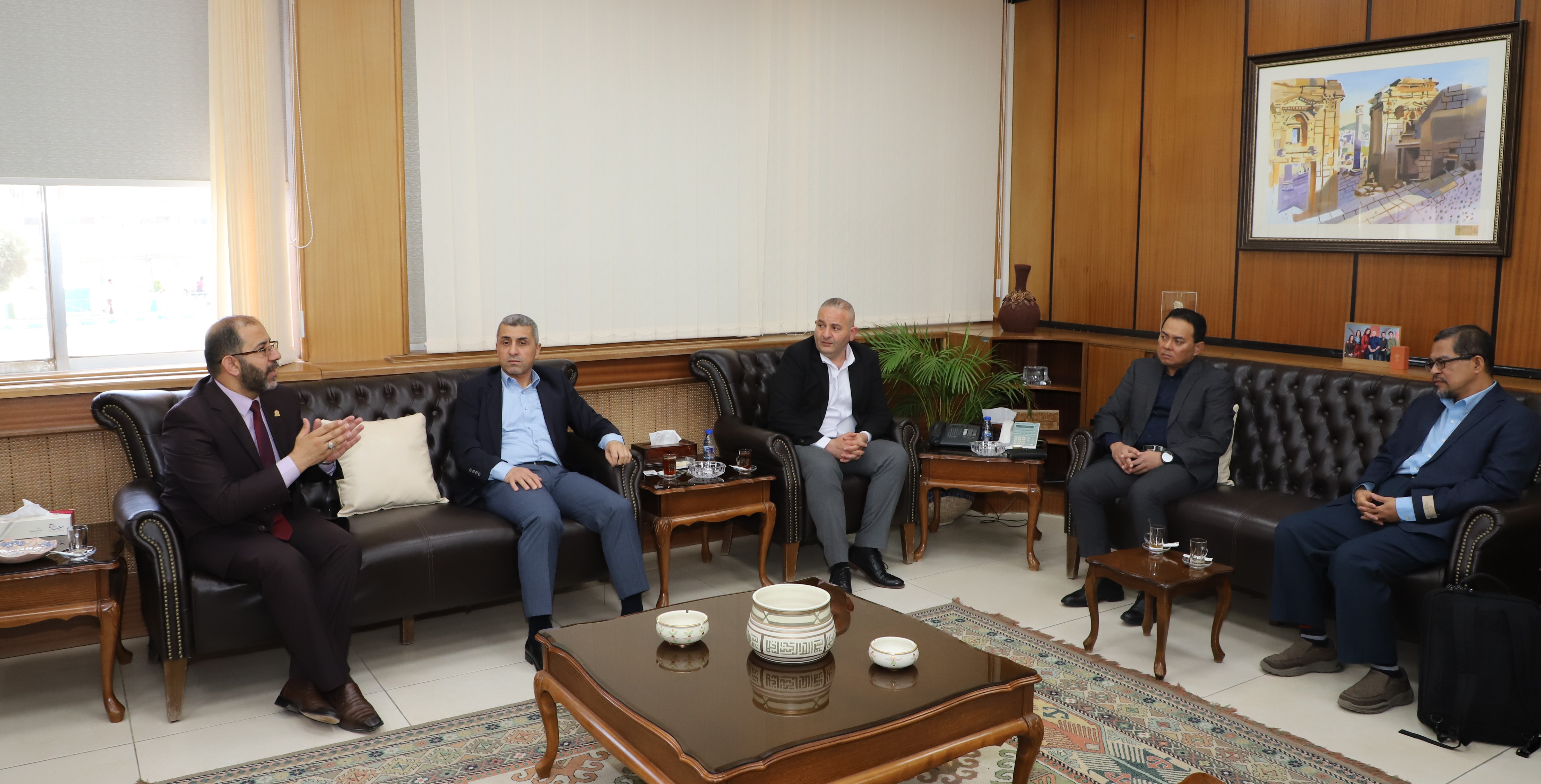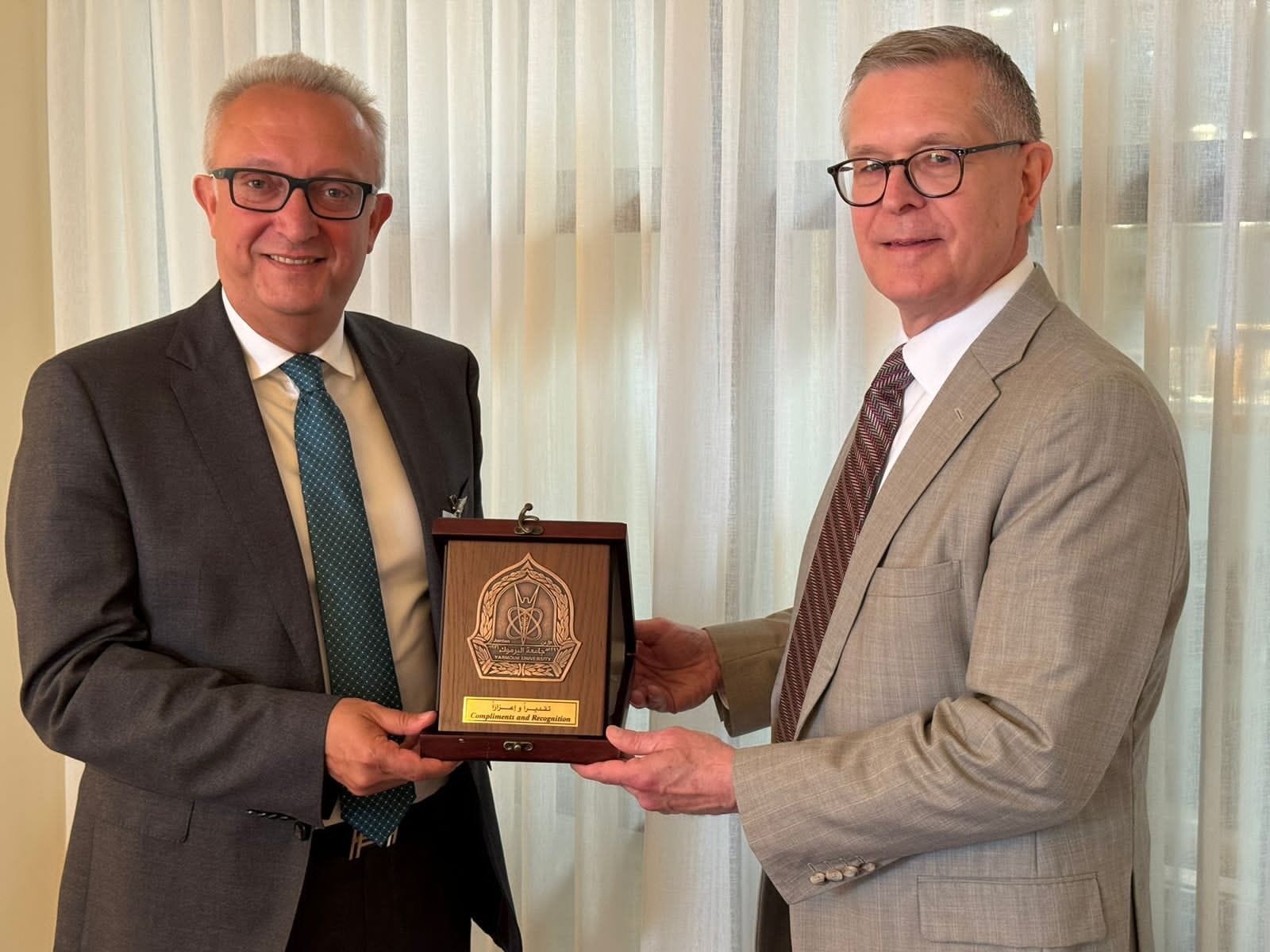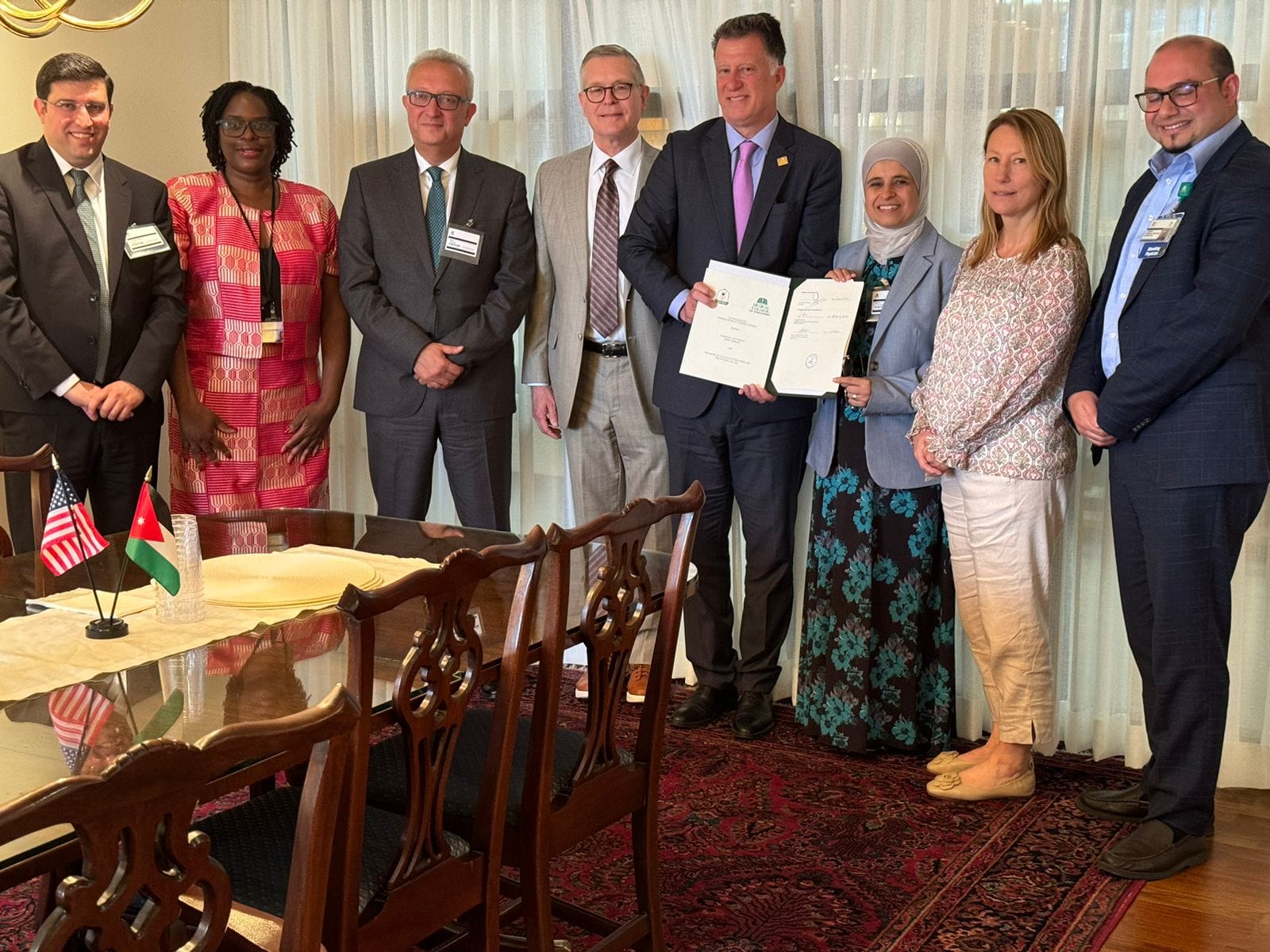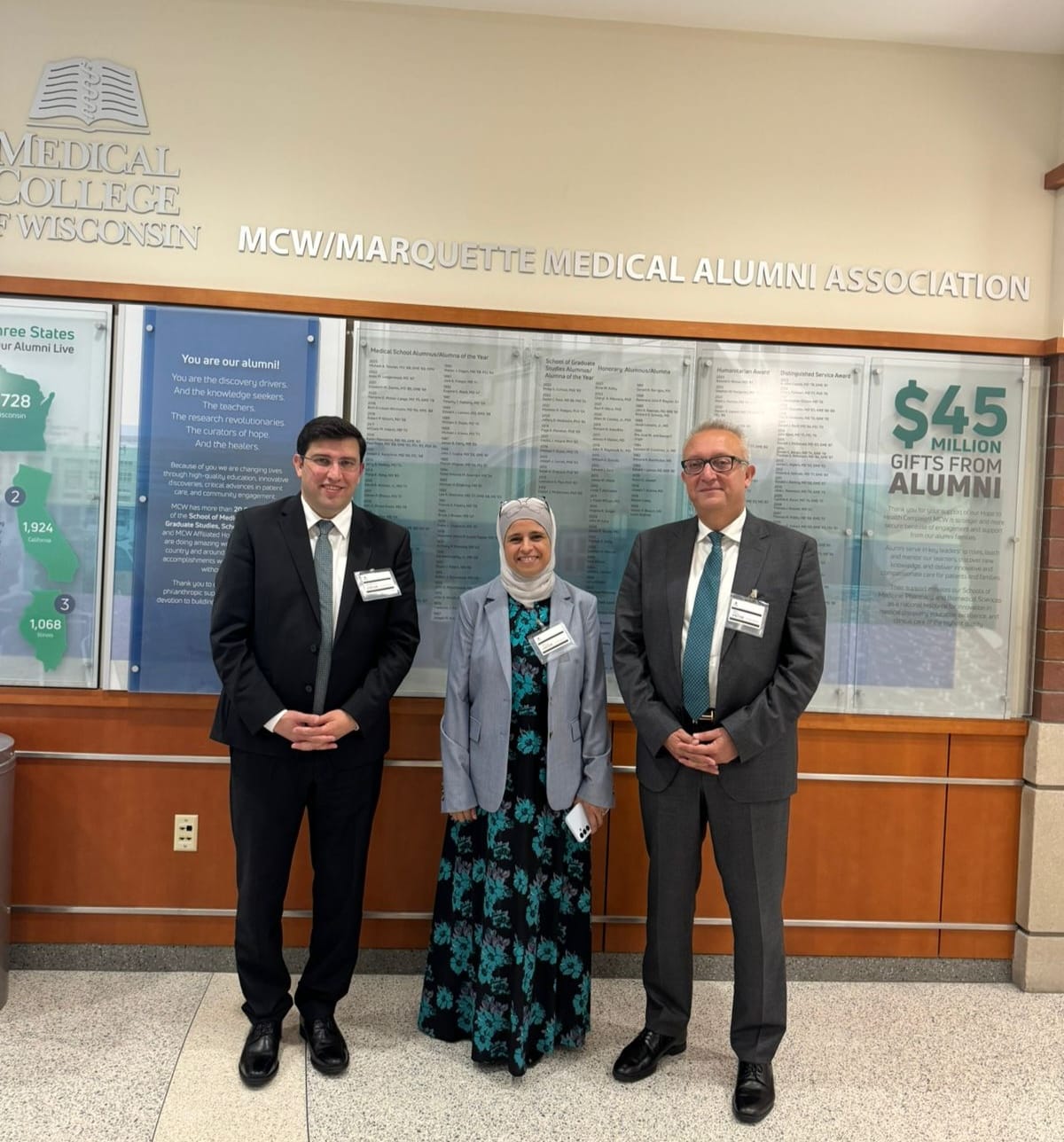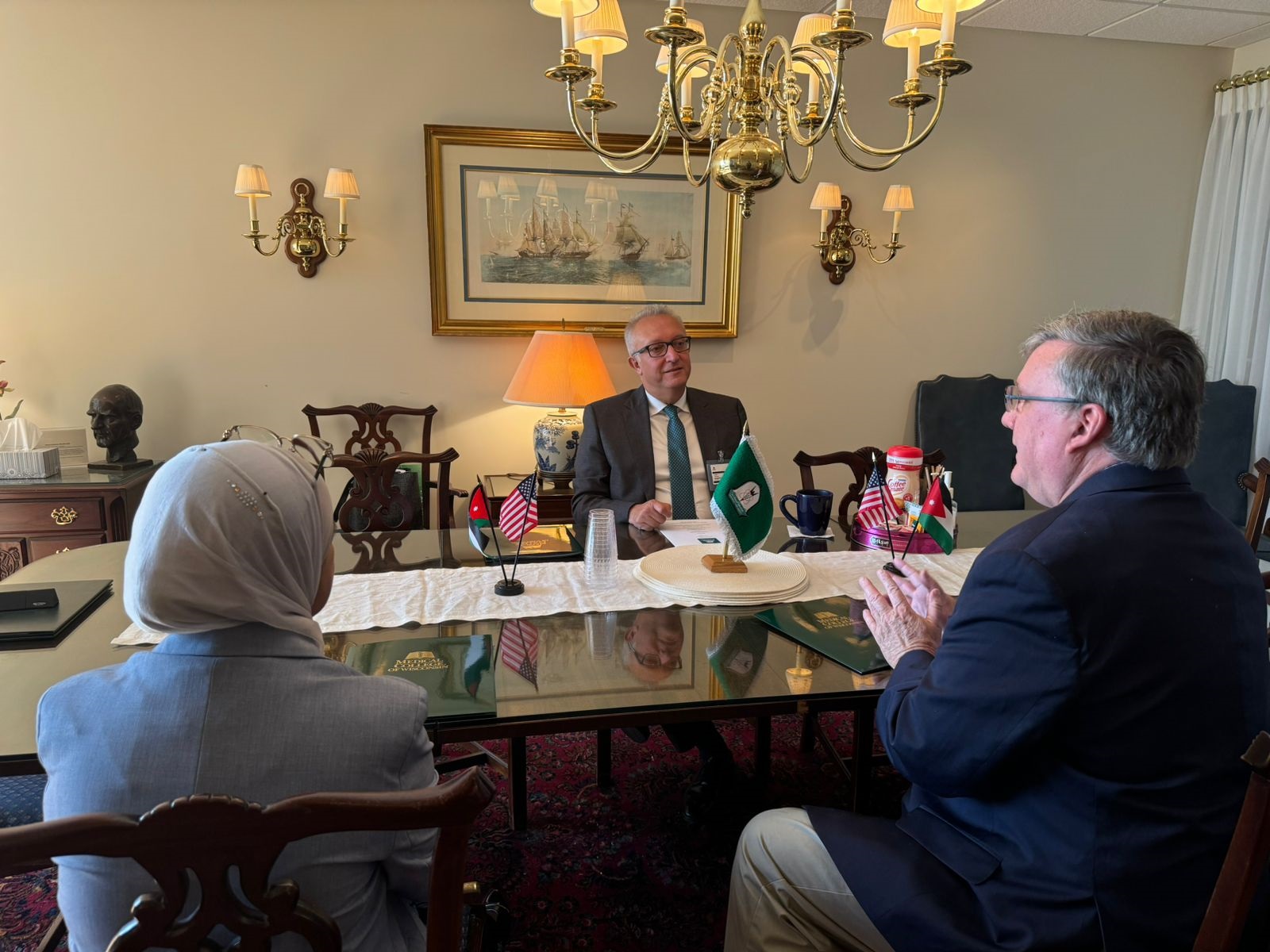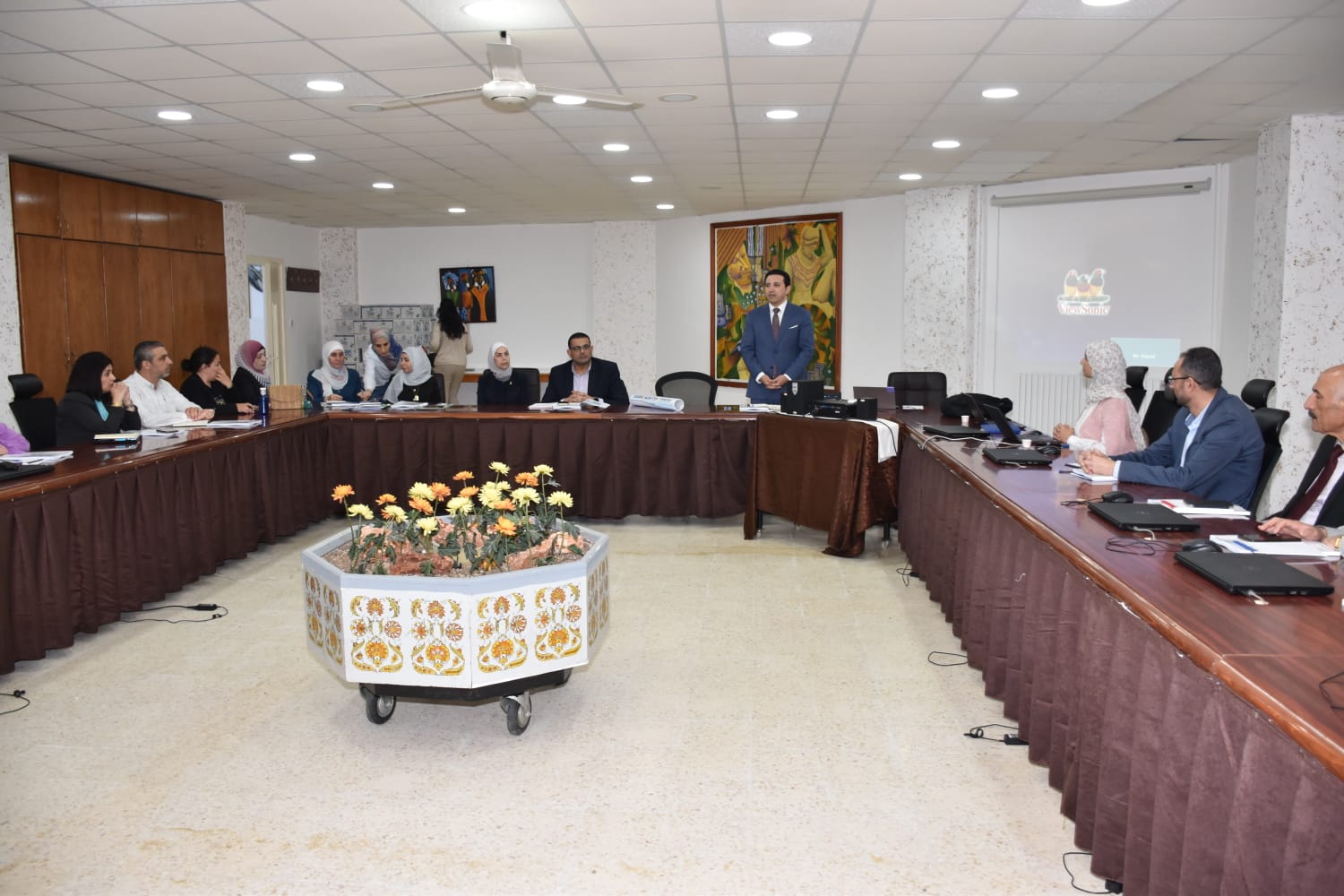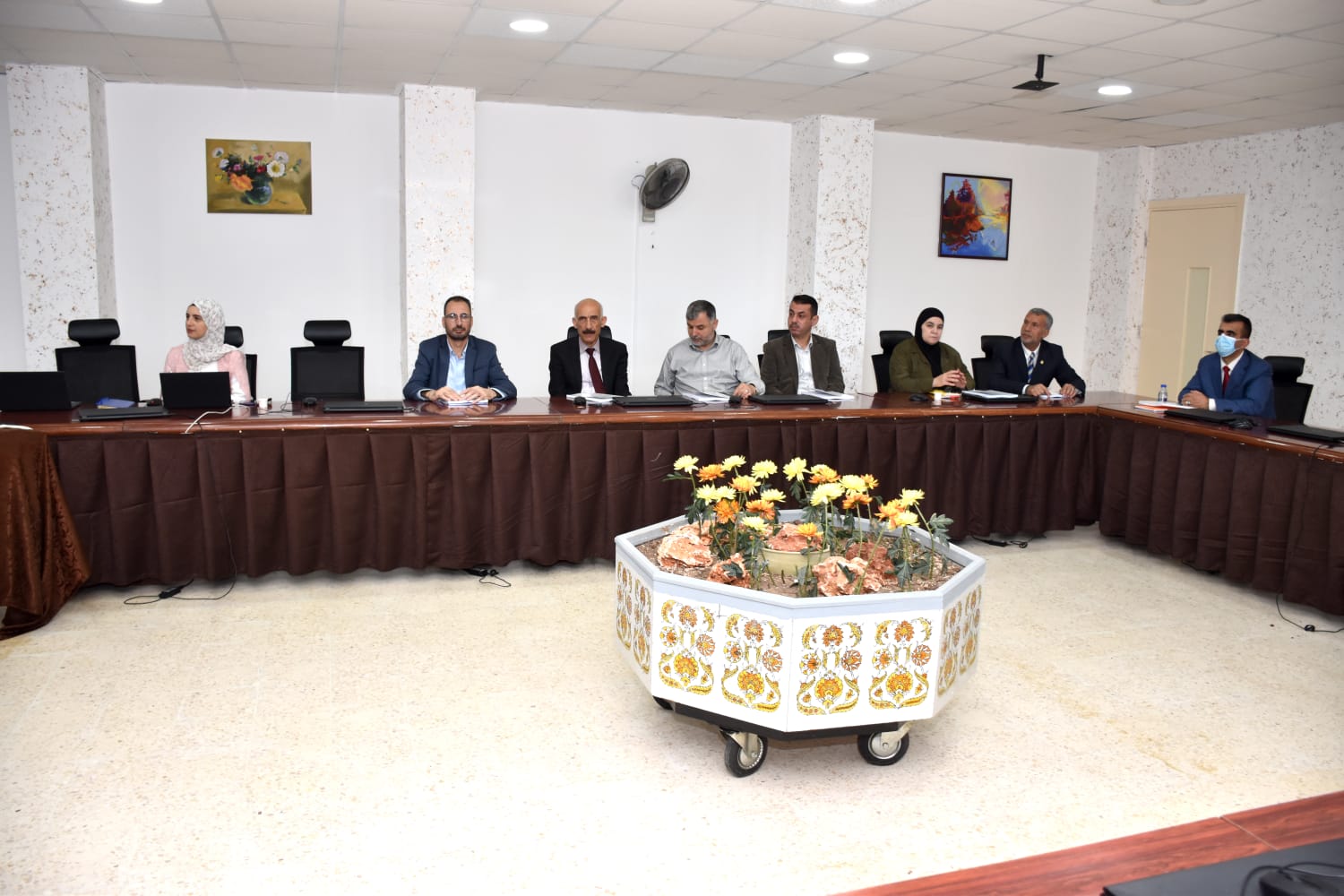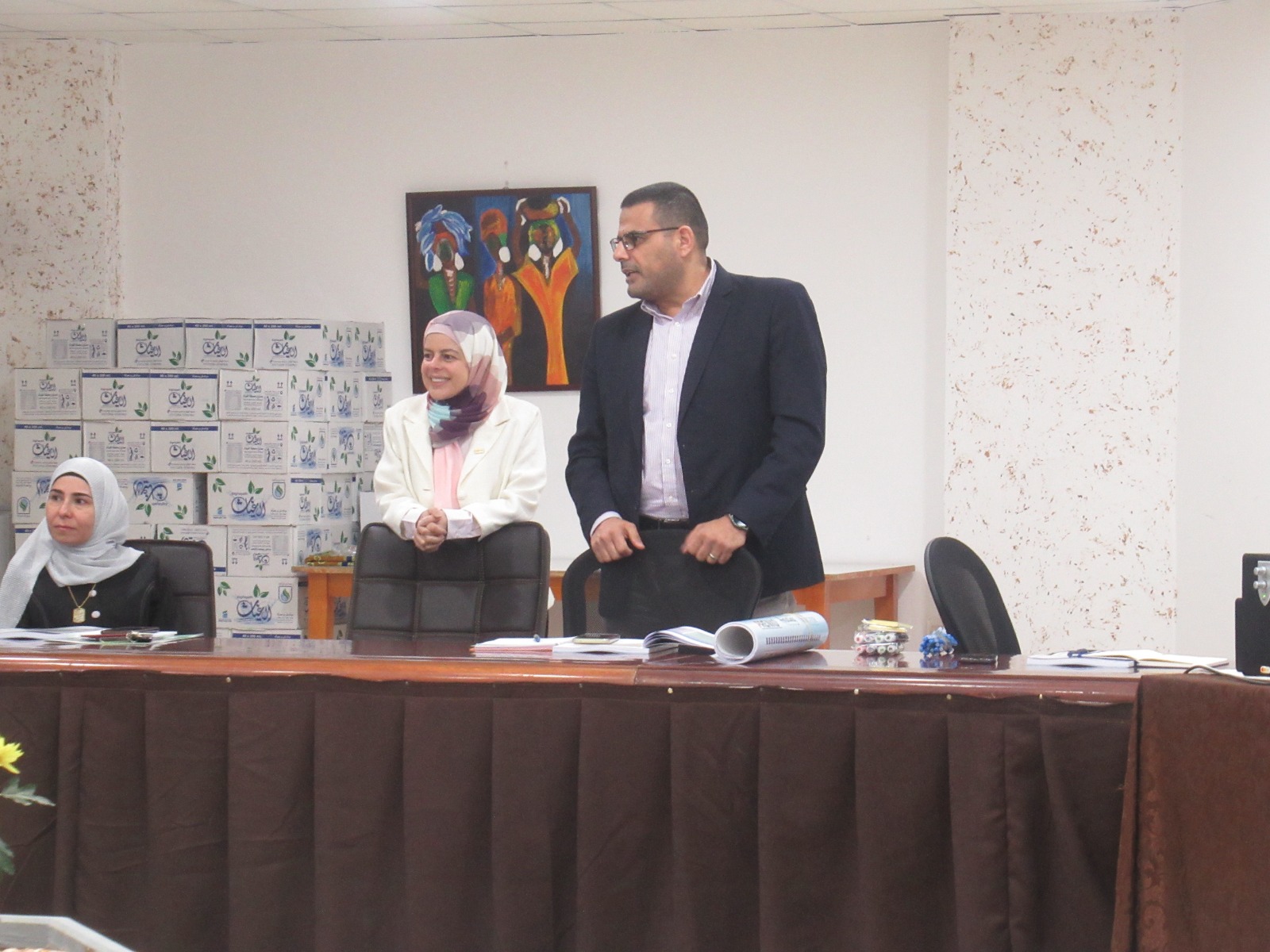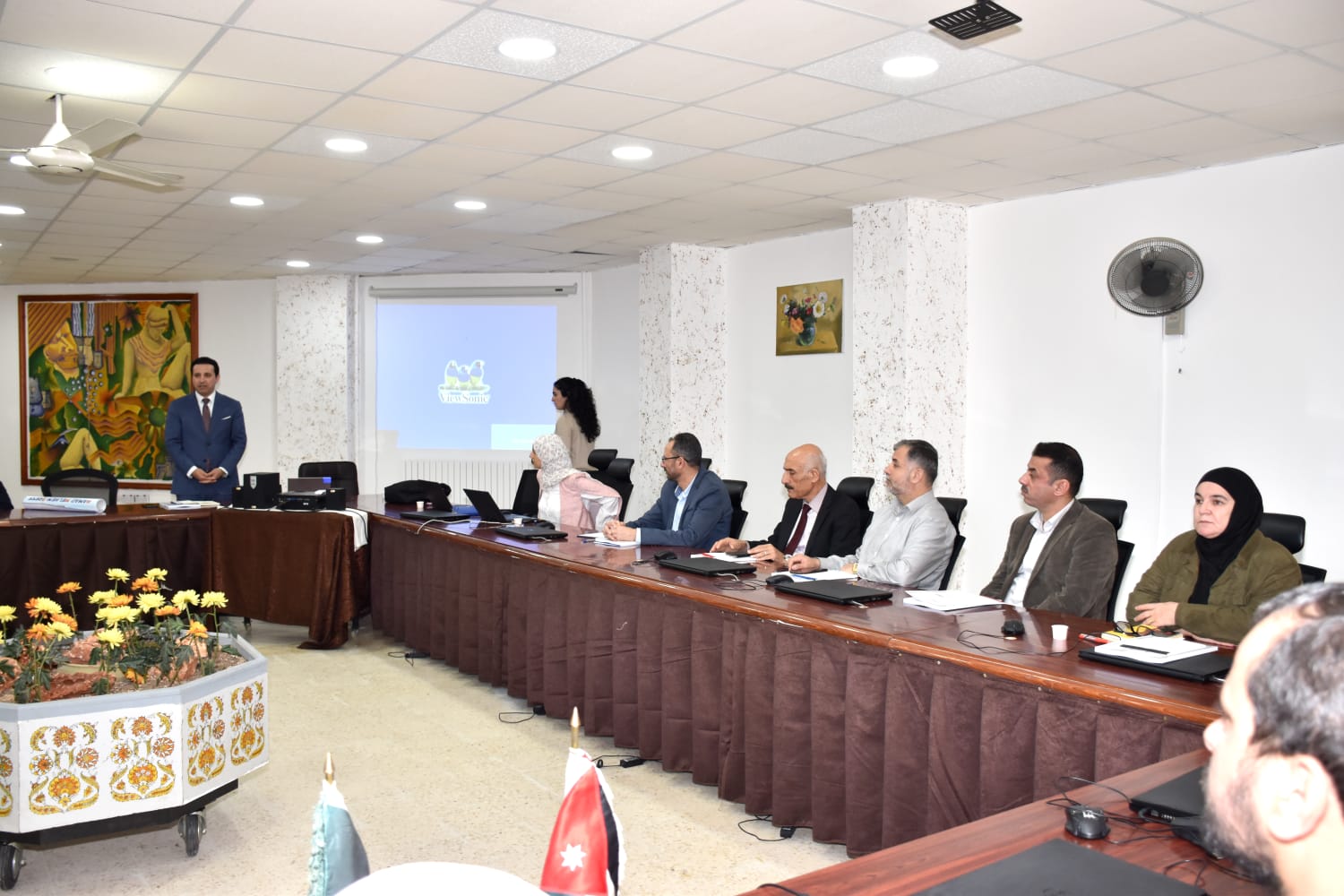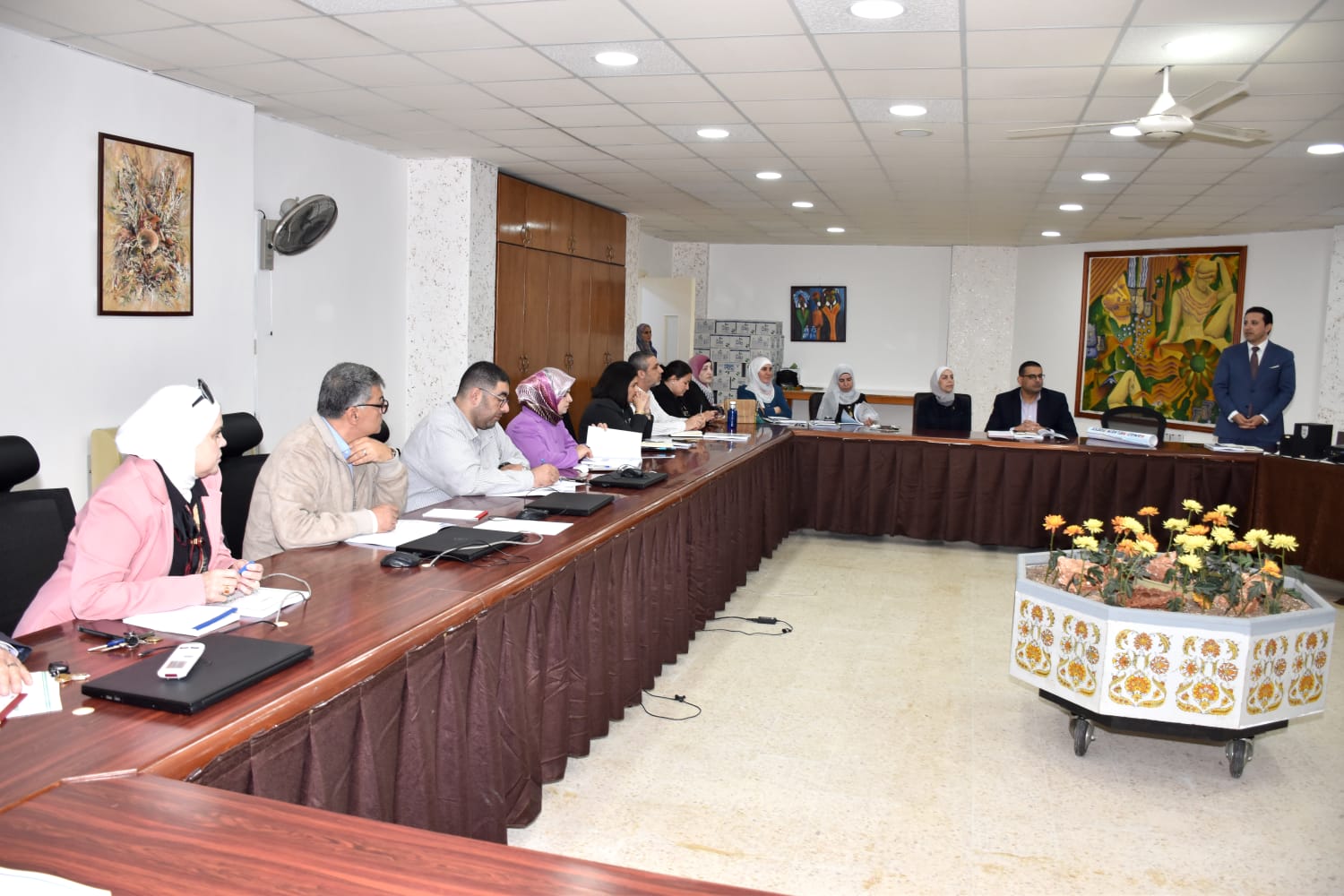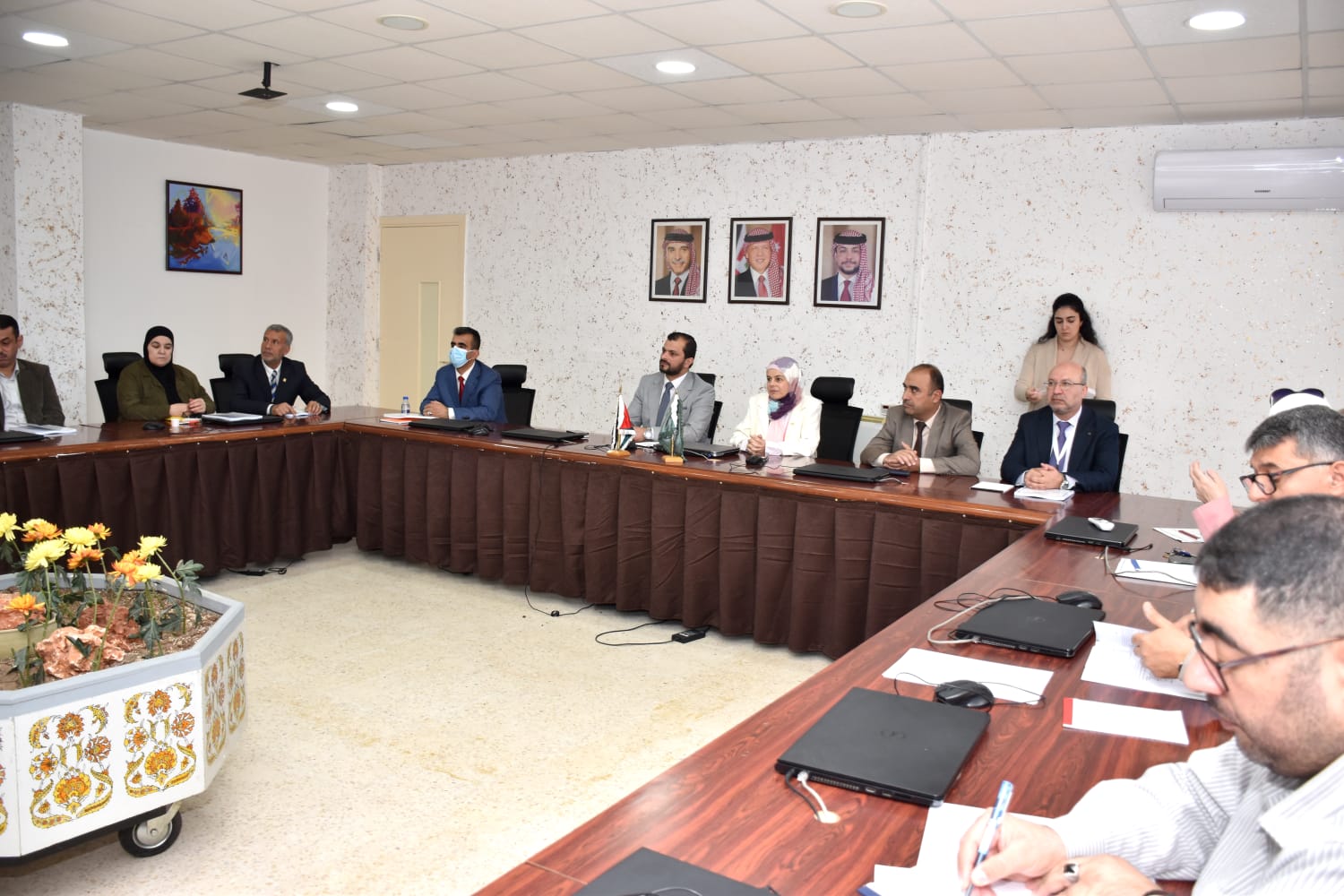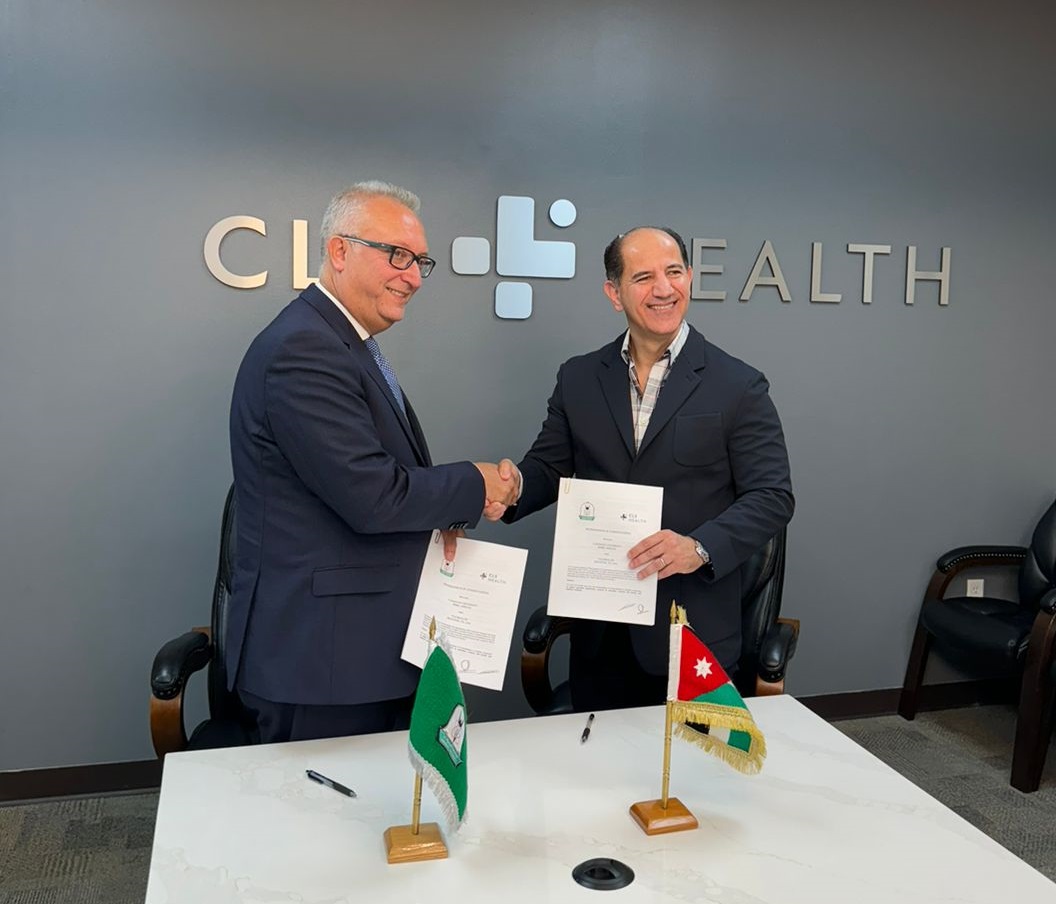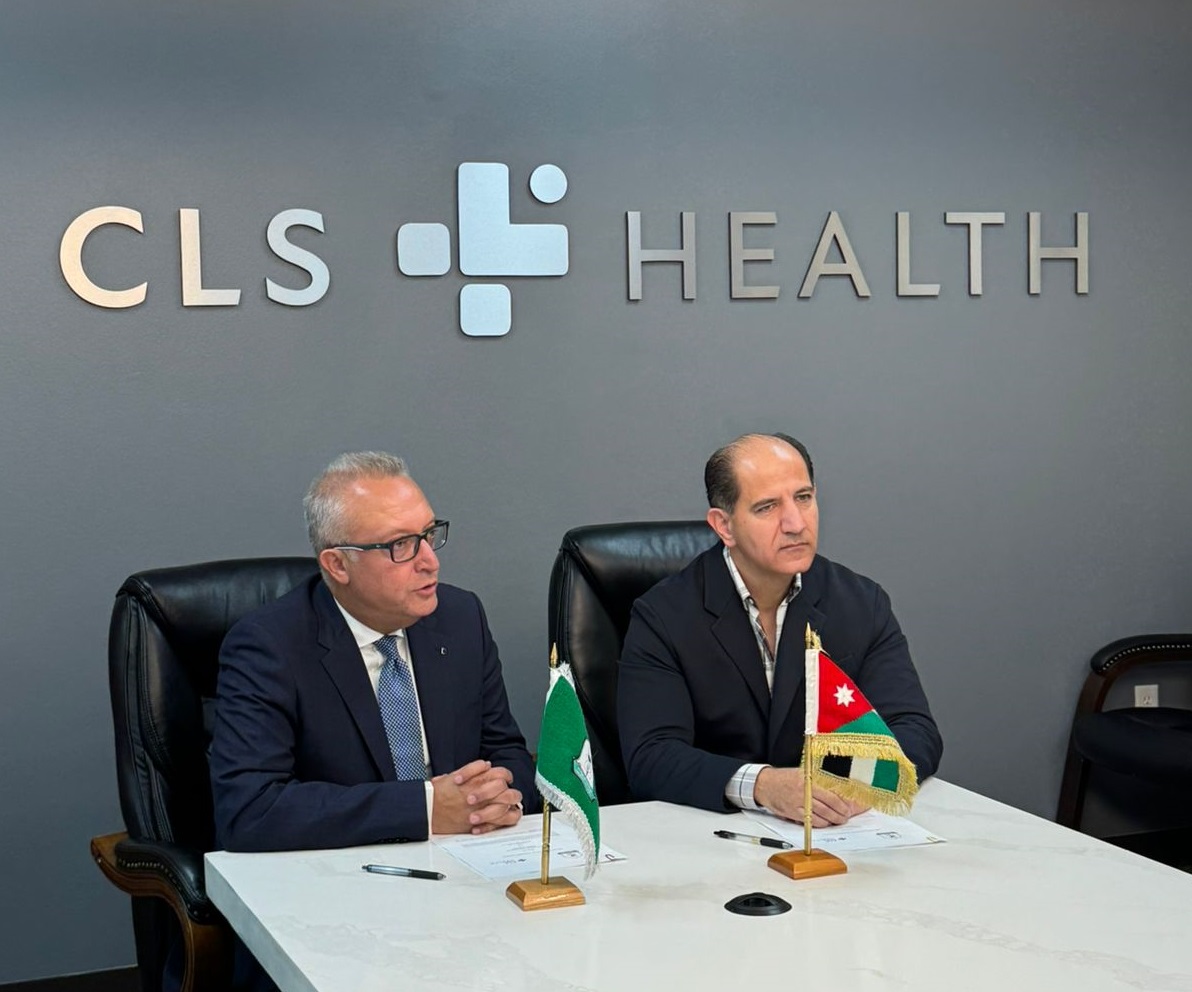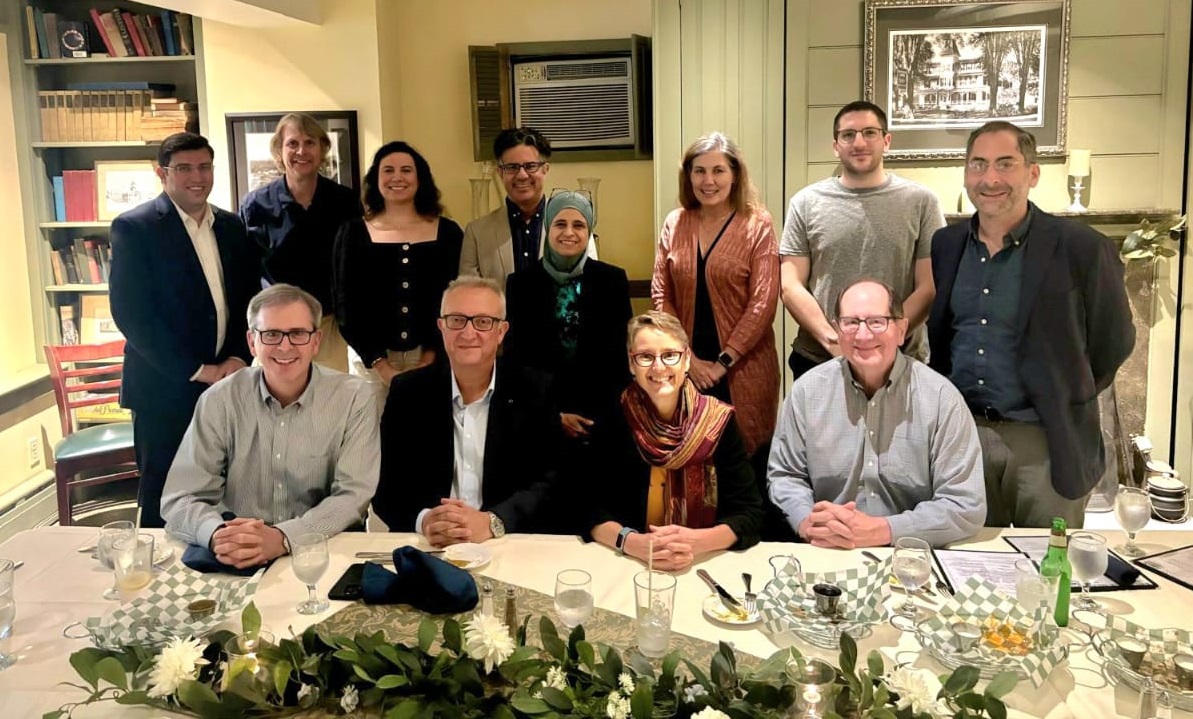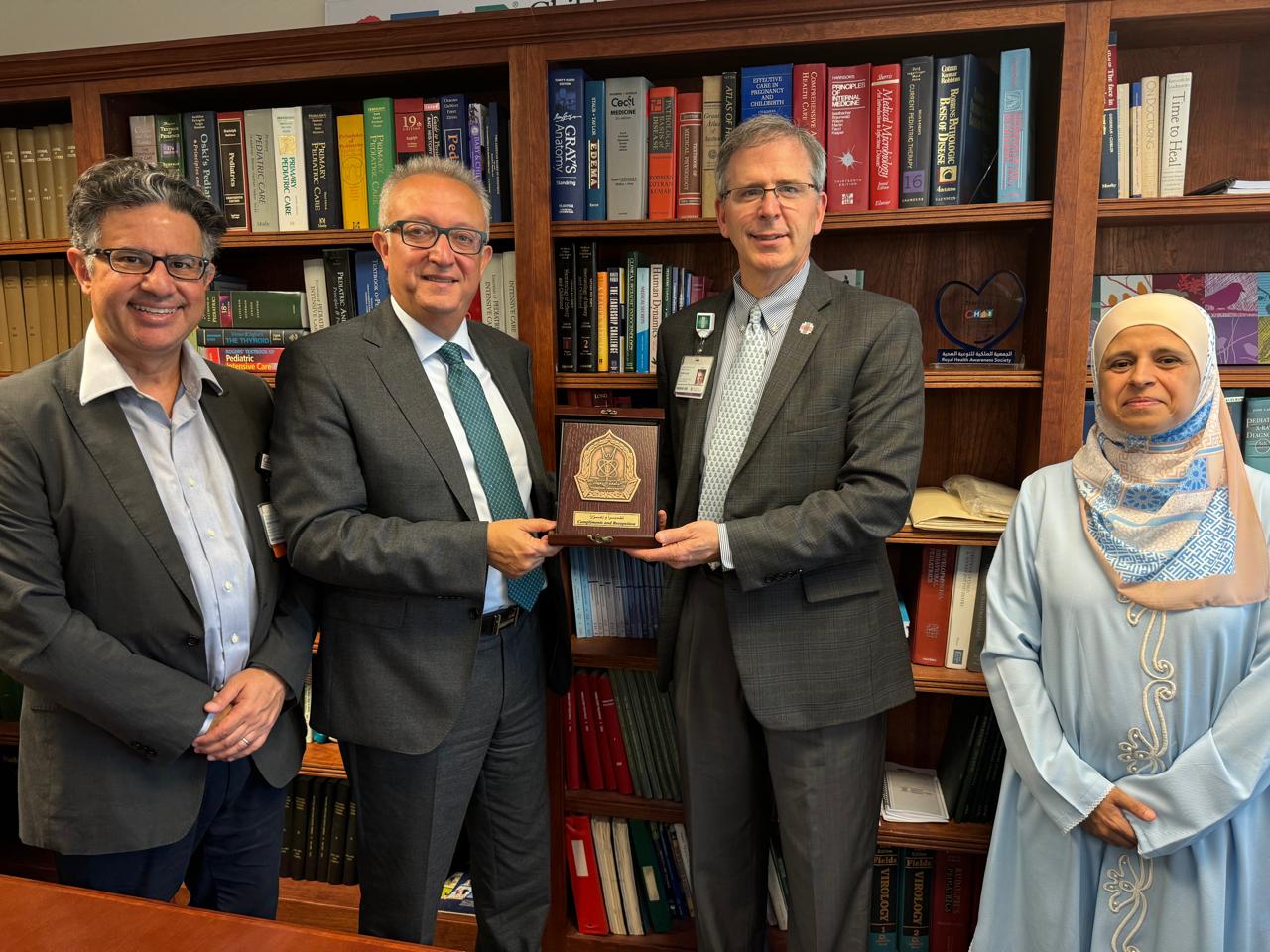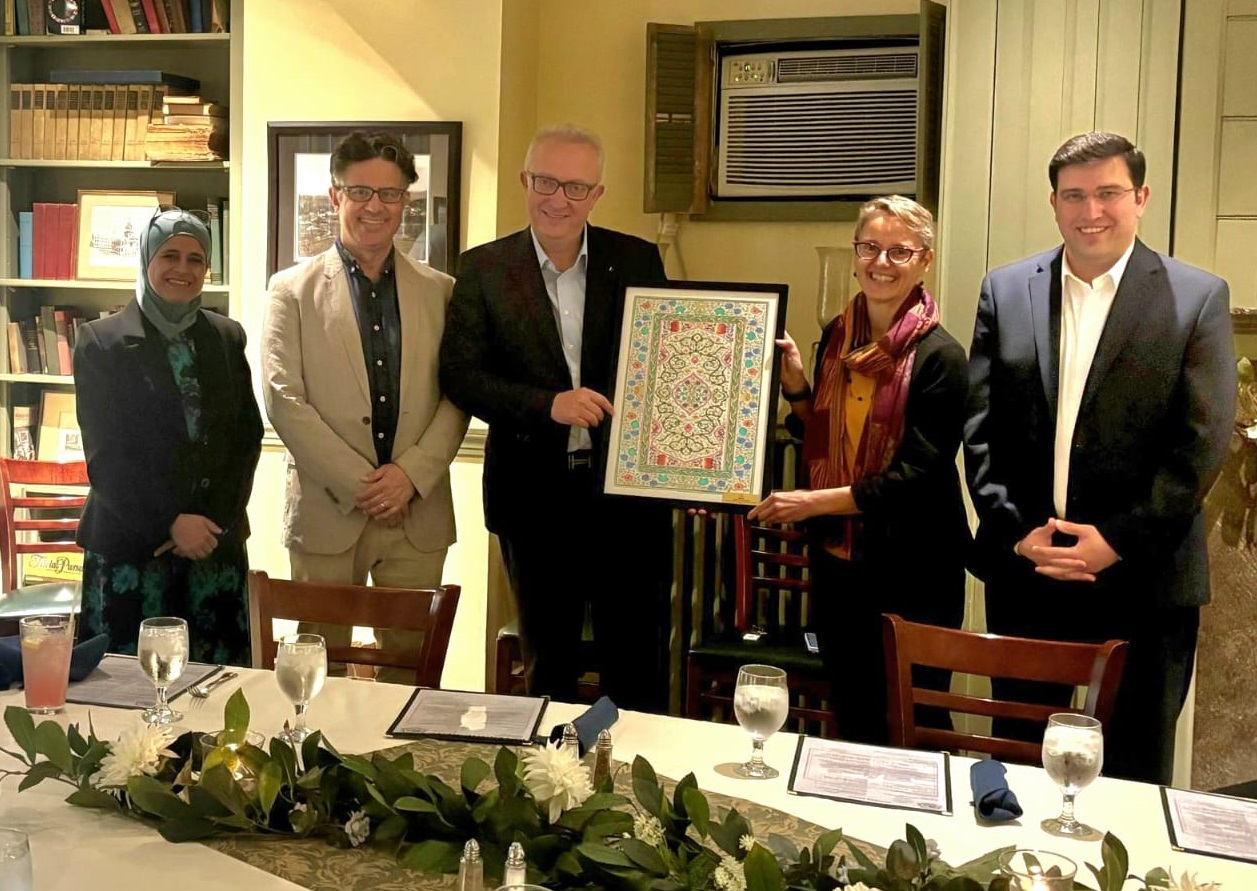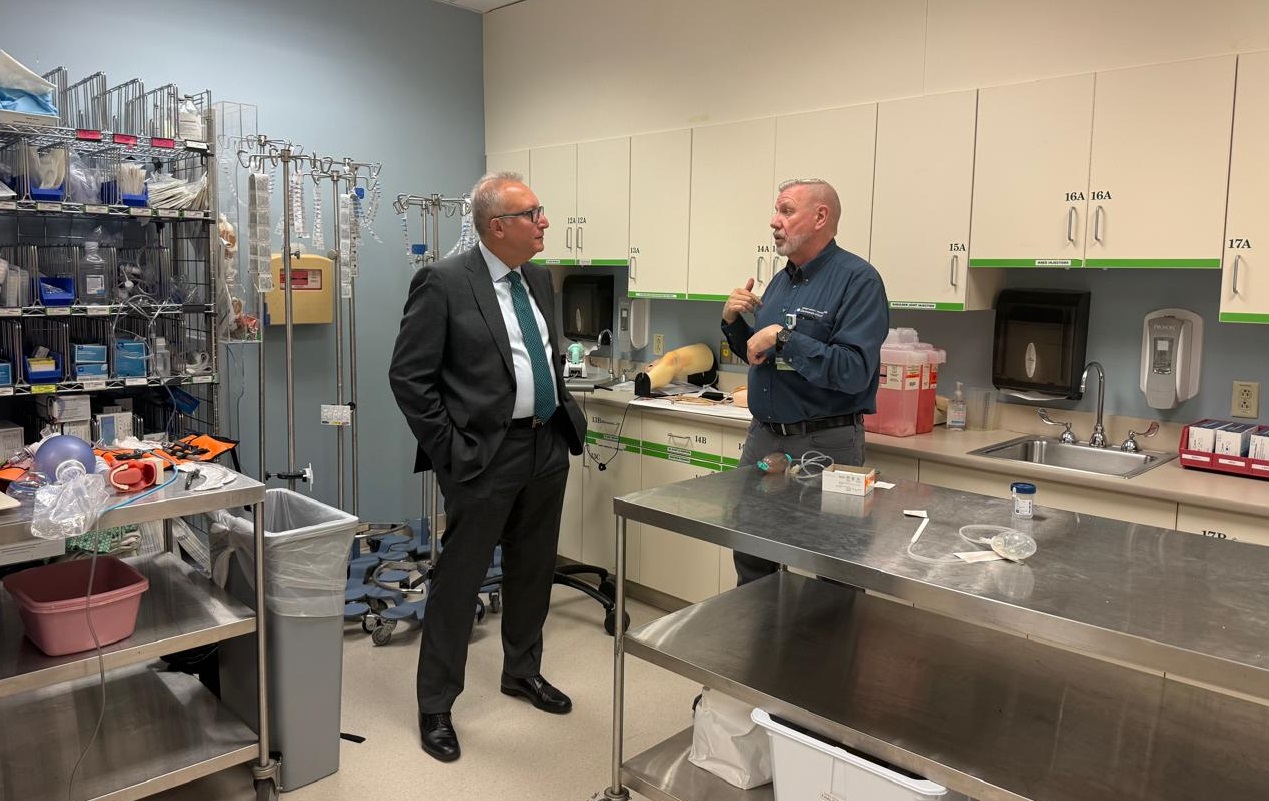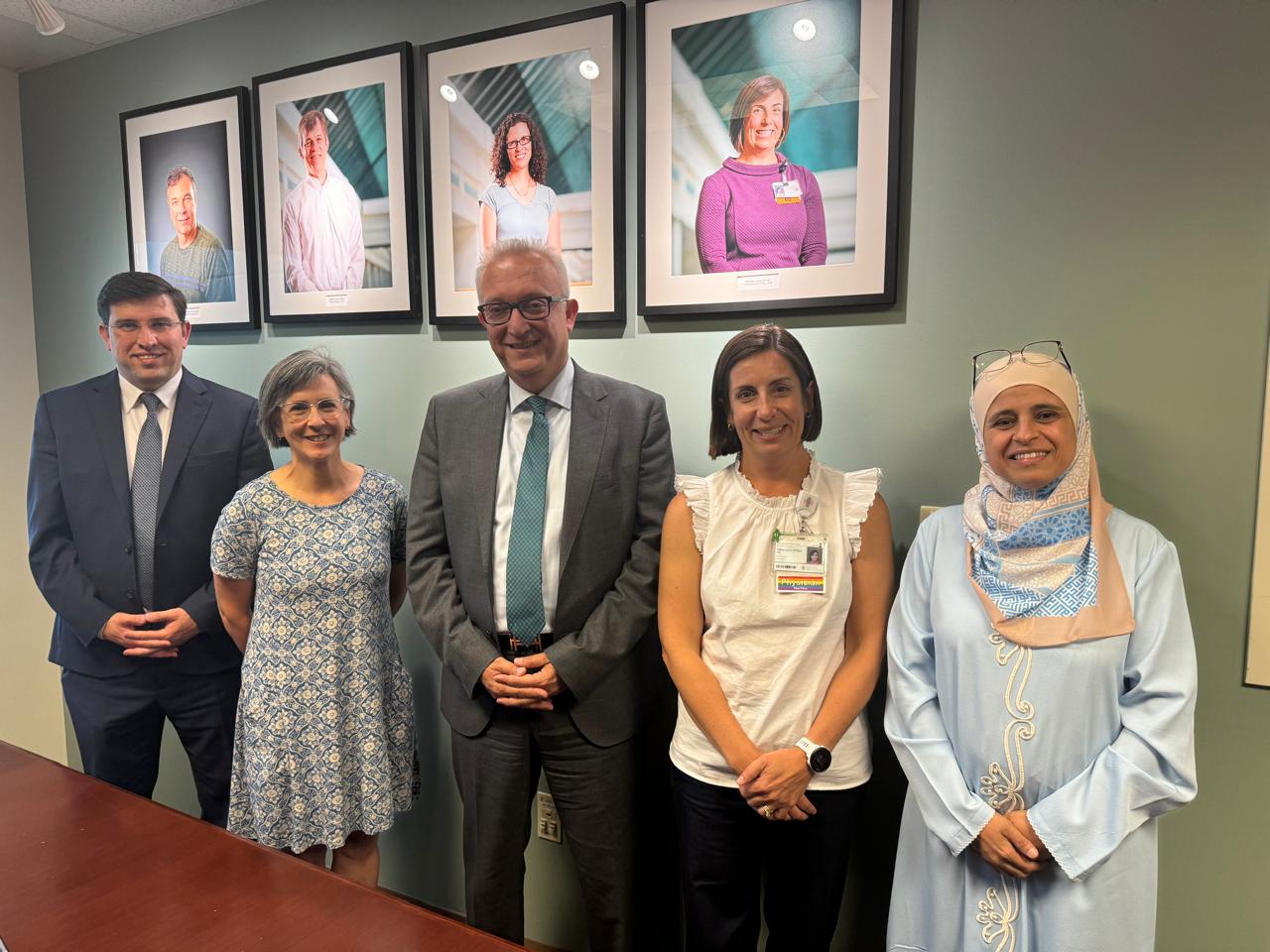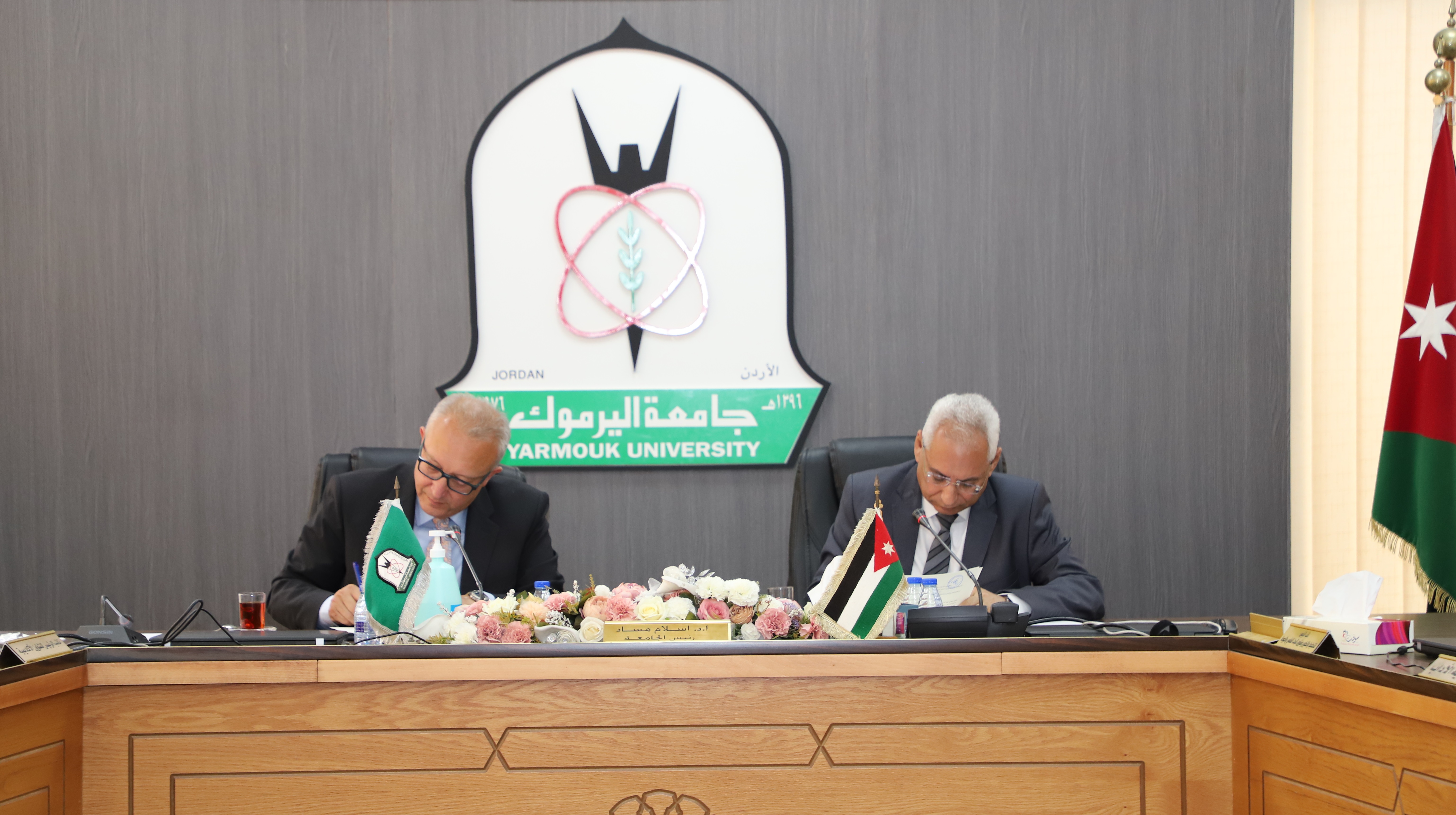
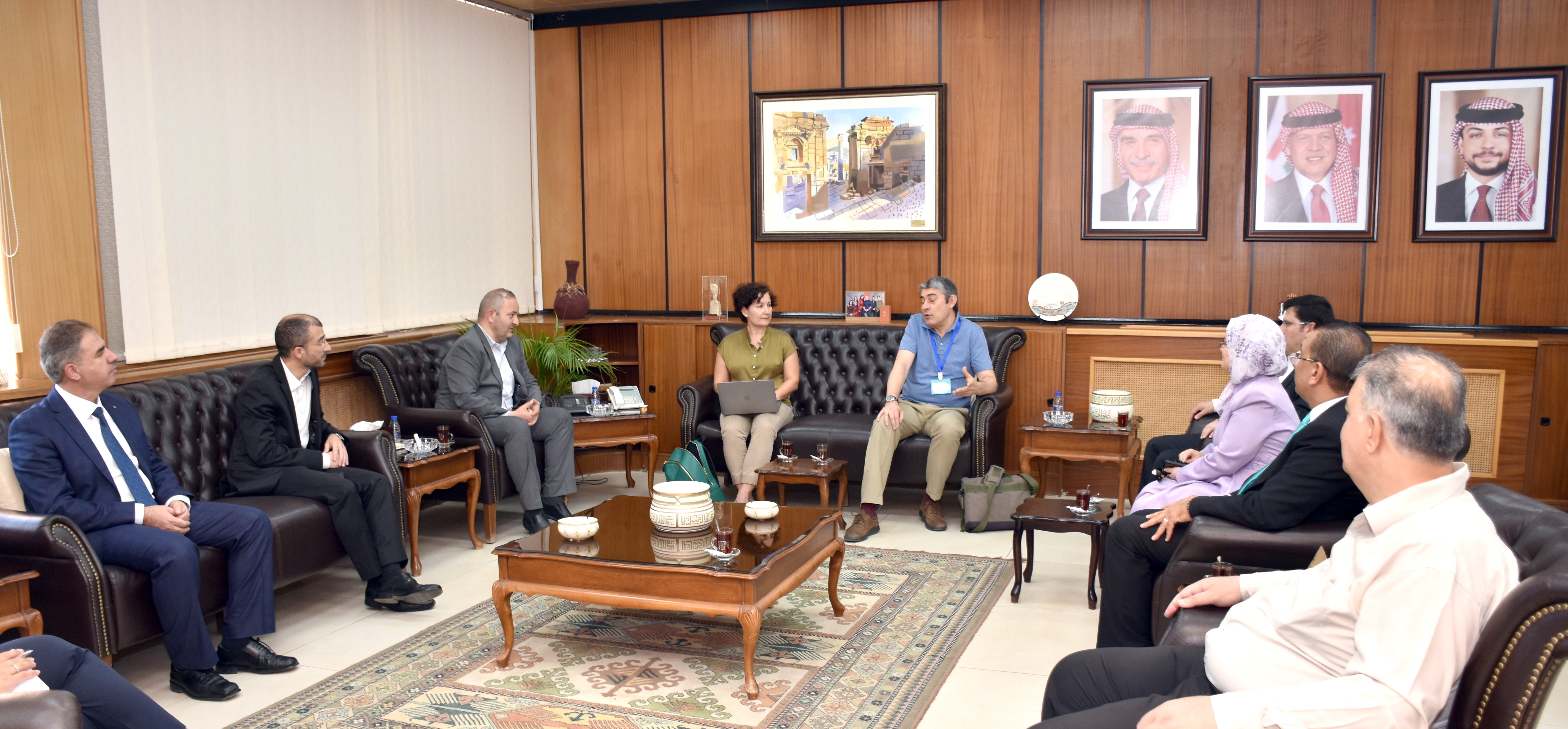
The Vice President of Yarmouk University for Planning, Development, Scientific Research and Quality Affairs, Professor Samer Samarah, met with a delegation from the University of Florida in the United States of America, which included Dr. Rafael Munoz and Dr. Nargiza Ludqit, where the prospects for scientific and research cooperation between the two universities got discussed.
Samarah stressed Yarmouk’s keenness to consolidate its cooperation with various prestigious international universities, which reflects positively on the progress of the educational process and the level of students and faculty members, stressing that Yarmouk has scientific competencies in various specializations. He then pointed out that cooperation with a distinguished American university like the University of Florida can provide the opportunity for both universities to exchange experiences and knowledge, especially in the field of developing study plans and the structure of courses to keep pace with recent changes and developments in their fields. Samarah also pointed out the possibility of cooperation between the two universities in the field of Collaborative Online International Learning (COIL), which provides the opportunity for faculty members from Yarmouk and Florida to teach courses offered by both universities, stressing the readiness of Yarmouk, represented by its Language Center, to receive Florida students who wish to learn Arabic language under the APSOL program.
In response, the members of the delegation praised the distinguished scientific reputation of Yarmouk University, which made the University a destination for academic and research cooperation for various international universities, stressing the keenness of the University of Florida to activate the terms of the memorandum of understanding concluded between the two universities towards advancing the educational and research process. The delegation then reviewed the establishment of the University of Florida, which is considered one of the five best universities in the United States of America and is considered a comprehensive university in its academic specializations, as it includes humanitarian, health, and scientific faculties, pointing out that Florida University has started offering artificial intelligence courses in its various specializations with the aim of keeping pace with technological, modern developments.
